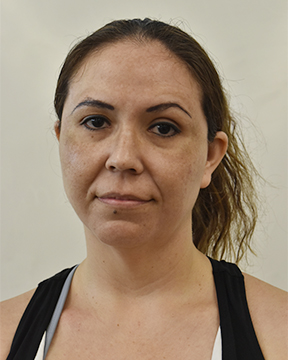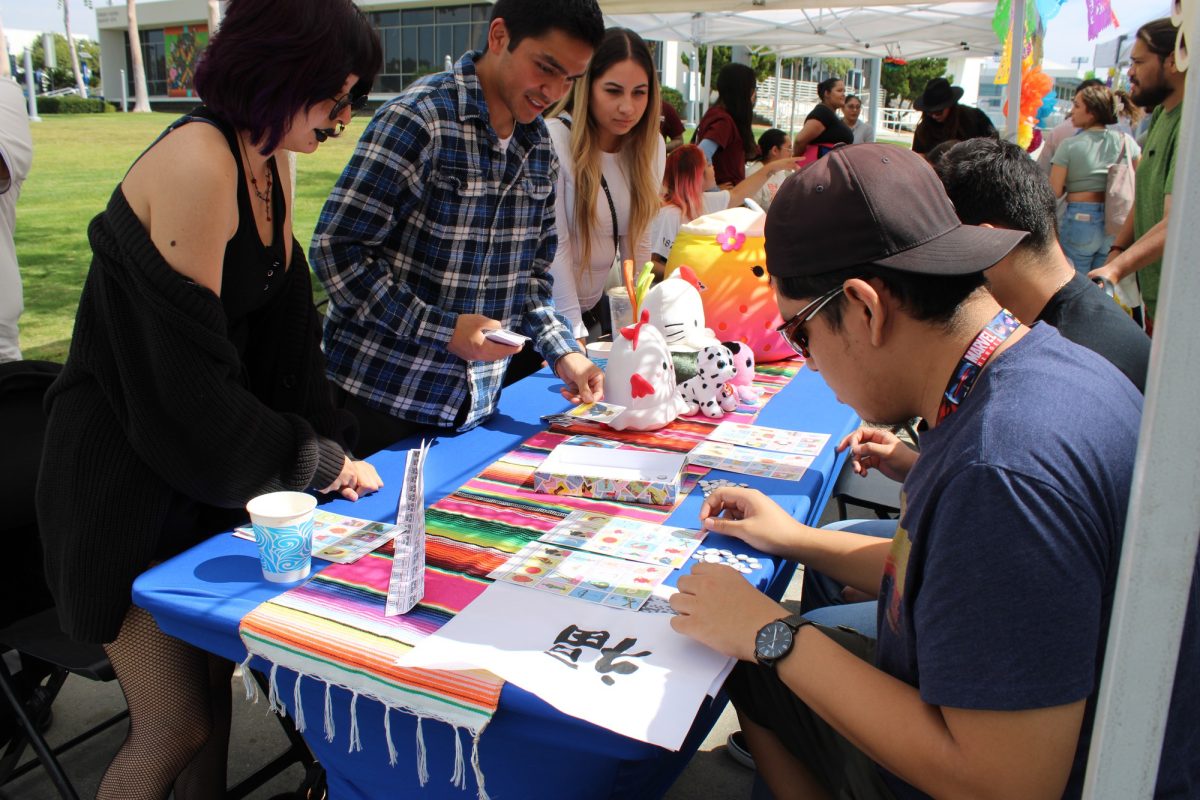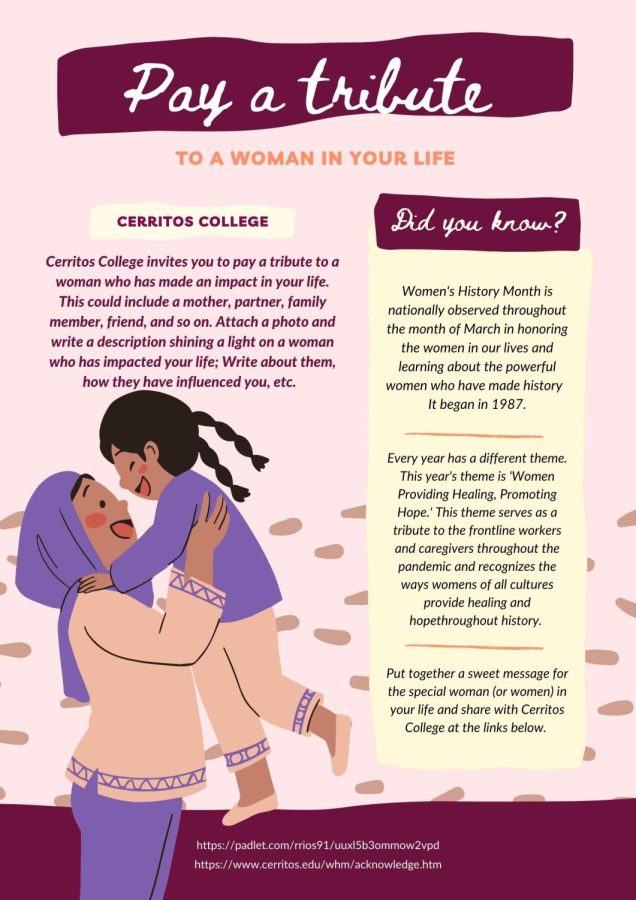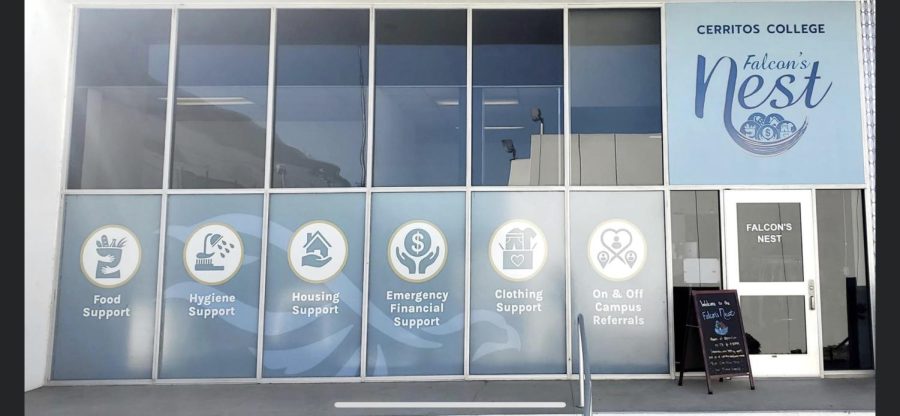Through the centuries, many courageous women have stepped forward to fight inequality and to champion causes for the benefit of society. Their work to break down barriers has allowed future generations of women to pass through without resistance.
The Science of Gender Bias and the Leadership Gap was presented by Business, Humanities and Social Sciences Division / Department of Psychology Professor Katie St. John who engaged and interacted with the students.
The presentation took place on Monday, March 20, 24 students were present, with 21 students being from her current psychology class.
Nursing Major Mariah Toyota thought the presentation was informative she learned that in film and social media a lot of people recognized they’re influenced and in most films females don’t get paid as much as males do.”
“There was a section in the presentation […] that captured my attention were women studies was very open toward [and] opinionated on bias.”
Justin Sepulveda, film major thought the professor showed an interactive conversation that students engaged with.
“What [have we] as a society done to better the situation that we are in right now? I feel there’s a lot of unfairness going on toward women.
“Instead, we should open up to people and be more précising and embrace them with more opportunities; with what they can bring rather than categorise everything in what women and men can do,” Sepulveda concluded.
Aimee Flores, chiropractor major, said, “It was very eyes opening presentation, living and not realizing the way, [we] the women are living as how we were raised and how we are supposed to look at sort of things just because we were grown up to been a sort of way and look in sort of way.”
She said it made her realize how [we] the women have struggled and […] have been kept on the shadow and underneath the umbrella of the men power who have been receiving always a better treatment, just for a simple fact that they were born males.”
John said, we are biases in general thing that we find interesting, or in things we think we are the cause of sort of outcomes.
“I was just presenting my opinion based on research, but I really want it to engage them to also think about it and to know what do they think.
“It was an invitation for them [students] to give their comments, I wanted to be more a conversational presentation and it went pretty well.”
As part of the presentation John read letters, one letter was from Monika a transgender woman.
In the letter she expressed the differences in gender she learned and experienced after she transitioned from male to female.
The letter states, “If like me you presented formally as a guy before transitioning you probably have realized just how much privileges you’re about to give up. [I] took so many little things for granted, like been able to walk outside and go to a bar like a random man without having the need in calling my parents. Sexual harassment, sexual routine thing, now that I can even remember what like it felt about it. You probably also noticed that people take you less seriously at work because of your gender and presentation, you have to be twice of assertive as you were before in order to get people to pay attention to your contributions, and you’ve probably been label as a bitch for doing this.”
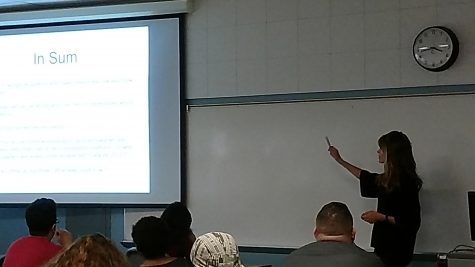
Took place on March 20, at BE 109. Photo credit: Lizette Sainz



